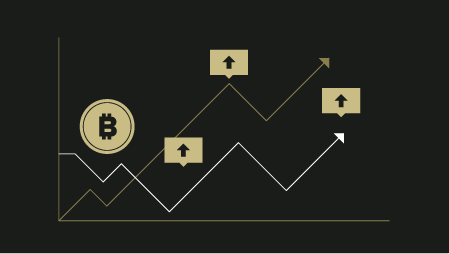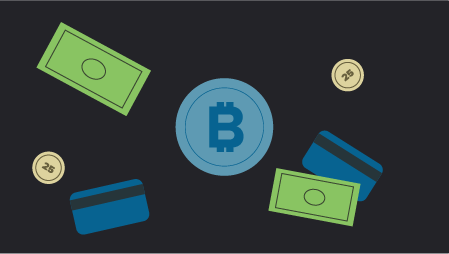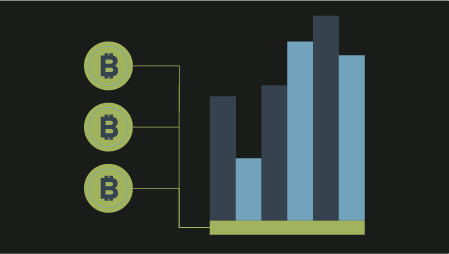Ready to learn Blockchain? Browse courses like Blockchain for Finance Professionals developed by industry thought leaders and Experfy in Harvard Innovation Lab.
100 things to know for those new to bitcoin
Bitcoin is the leading edge of a movement I think of as Open Source money, and here are a few ways of thinking about this that might help.
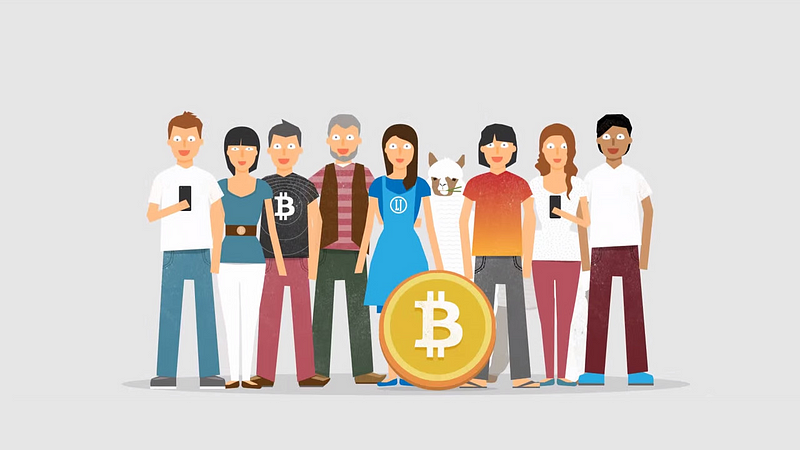
I will just make a list of 100 assertions and if you have any questions, just add them to the comments at the bottom. The goal isn’t for you to understand all of these assertions, but if they contain unfamiliar words or concepts, you can then google those concepts and become informed. Understanding what is behind these 100 assertions will help you become knowledgeable about Bitcoin. If you want you can see how many of these things you already knew and give yourself a score out of 100 at the end.
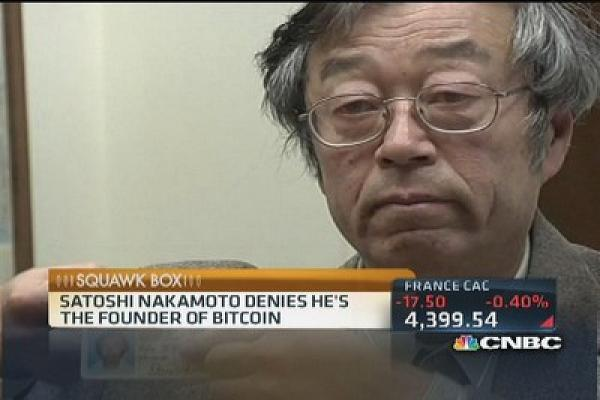
This is not an exhaustive list, nor is it a perfect list. I’m sure people more expert than me can point out flaws in my list or additions. If you see any flaws or want to add your own, please use the comments section at the bottom.
Without further ado, 100 things I’d like new Bitcoiners to know:
- Bitcoin is open source software
- Open Source software is characterized by competition across many variations that eventually converge to the most satisfying solution
- Sometimes multiple groups find different versions of an open source project satisfying, so the eventual state includes multiple versions
- This competition among open source projects causes those projects to increase in performance, security, inclusion and other values
- A good software developer can fork Bitcoin
- Forking means releasing a modified copy of the software
- The word Bitcoin is not trademarked, so anyone can call anything Bitcoin
- This means that just because something is called “Bitcoin Ultimate” or “Bitcoin Platinum” it does not have any official status
- Bitcoin’s design is to eliminate the need for a trusted third party
- Bitcoin’s rise is in part due to lack of trust in financial intermediaries such as governments and banks
- There is nothing “intrinsic” to the value of Bitcoin (it isn’t backed by an asset) but the same thing could be said of the US Dollar
- The US Dollar has lost about 90% of its value since 1950
- The US Dollar used to be backed by Gold until 1971 and a the value of the dollar has since dropped to about 12 cents
- This is in part due to the US Government printing more money
- Bitcoin’s inventor is unknown and used the pseudonym “Satoshi Nakamoto”
- Satoshi Nakamoto used to be an active member of the bitcoin community but is no longer sending or responding to emails
- You can own very small fractions of a Bitcoin, for example you can buy $10 worth
- The smallest unit of Bitcoin you can own is called a “Satoshi”. 100 Million Satoshis equal one Bitcoin.
- Because of the divisibility of Bitcoin, nobody should be worried about the price of a individual Bitcoin being prohibitively expensive; people should be more concerned as to whether bitcoin as a whole is expensive or cheap
- Bitcoin uses a public ledger called the blockchain
- The blockchain is secured by elliptic curve cryptography
- There are zero documented cases of a computer mathematically breaking into a bitcoin wallet by finding the private key from a bitcoin address
- Bitcoins are controlled by a private key, a string of characters
- Anyone who knows the private key can spend or transfer your bitcoins
- If you don’t know what your private key is, and you own bitcoins, it’s likely that your coins are sitting on an exchange like Coinbase
- If you leave your coins on an exchange, it’s possible that the exchange itself could steal your coins, or an employee at the exchange, or it’s possible that the exchange could be hacked and you could lose your coins.
- You can back up your private key by printing it out on a sheet of paper, this paper is then known as a “Paper Wallet”
- “Your” bitcoins are not stored on your laptop or phone or on any single device
- “Your” bitcoins are stored on the bitcoin blockchain, and thousands of copies of that blockchain are stored across thousands of computers
- Don’t share your private key with anyone, unless you are ok with that person taking all of your coins
- All addresses on the blockchain as well as all transactions are a matter of public record on the decentralized ledger, but essentially anonymous
- Bitcoin transactions are irreversible unless the recipients deliberately sends the exact amount back to the original sender
- Bitcoin is decentralized, meaning it has no company, president, government or bank that controls it
- Part of the design of a decentralized system is preventing “free riders” from stealing value from the system, at the same time as rewarding network participants (such as bitcoin “miners”)
- Bitcoin has inspired many open source cryptocurrencies, but not all cryptocurrencies are open source.
- People who focus on price movements and predicting what other people will do are called Bitcoin speculators
- People who understand Bitcoin and support it are called investors
- Selling or buying when you think others are selling or buying is a form of speculation called momentum investing
- Selling or buying emotionally (panic selling, fear of missing out) is likely to cause you to lose money
- Institutional investors (professionals) can make money from retail investors and speculators (amateurs) by pumping up the price and then dumping. This is market manipulation and something speculators are sensitive to
- Professional investors are now trading bitcoin futures
- In futures trading it’s possible to take both “short” and “long” positions
- In a long position, the trader “bets” that the value of the asset will increase
- In a short position the trader “bets” that the value of the asset will decrease
- One danger in a “short” position is that it is subject to a “short squeeze” where traders are forced to liquidate as a function of the asset price increasing. Since there’s no upper bound on an asset price, the limit to how much you can be penalized for a short position in unlimited. While infinite losses have never happened, there have been some very large losses from short positions in history.
- Large investors (whales) can manipulate markets by causing prices to inflate rapidly (pump) and decrease rapidly (dump)
- The best protection against pump and dump is to invest in things you understand and to avoid speculation
- Warren Buffett says the best holding period is “forever”. He also says that if you don’t know who the “mark” (fool) is at the table, it’s you.
- HODL is a phrase from bitcoin talk forums signifying the desire to not sell Bitcoins despite price volatility. It is NOT an acronym, it comes from a typo where someone wanted to say they are HOLDing.
- Bitcoins are deflationary
- The restriction on the total circulation of bitcoin contributes to its ability to store value. Conversely, a cryptocurrency that continuously increased the number of coins in circulation should decrease in value per coin.
- There will never be more than 21 million Bitcoins in existence, a number which is enforced by the source code
- If you lose you wallet private key, those bitcoins are gone
- It’s estimated that as many as 4 million bitcoins are out of circulation due to this or similar mechanisms
- Bitcoin uses a peer-to-peer mechanism for verifying transactions called Nakamoto Consensus
- Nakamoto Consensus is based on a class of algorthm called “Proof-of-work”
- Proof of work algorithms involve doing computational work, in essence paying a price in order to participate in the Bitcoin blockchain
- The work includes validating transactions, thus helping to secure the network
- In addition to validating transactions, every ten minutes or so, the bitcoin blockchain elects a computer to write down all of the transactions that happened in the past ten minutes
- This set of transactions is called a “block”
- Each new block is added to the end of a chain of blocks and the new block contains a “hash” that represents the previous block, hence it is called a blockchain
- Bitcoin consensus can work on separate versions of the “truth” but is designed to converge to a single truth at the point when each block is written
- The election process for choosing who writes down the block is a computational race involving calculating the solution to a math problem
- This math problem is a cryptography problem, and has the property of being quite expensive to solve, but extremely easy to check the answer.
- The requirement that it has a very easy to verify answer, and yet it is an adjustably hard problem to solve is the main reason why the computation and thus the electricity used on this problem are considered “wasted”
- Because of this consensus algorithm, Bitcoin is criticized for being ecologically wasteful
- This block computation race as well as securing transactions is an activity known as Bitcoin mining, and miners get bitcoins by transaction fees, but also by winning the computational race described above.
- The winner gets a fixed number of bitcoins and it is winner-take-all.
- A “mining pool” distributes the compute proof of work over the pool, and pays everyone regardless of whether the pool wins the block or not. The amount the individual pool workers receive, depends on their compute power, and the current difficulty to achieve winning the block. Most small miners are part of a pool, since individually mining for a block of bitcoin, at current difficulty levels, would, on average, not be achieved in one’s lifetime. (credit to Ted Matsumura, no relation)
- Mining is responsible for creating “new” bitcoins
- Another way of looking at mining is buying bitcoins with electricity
- The difficultly level of mining is adjusted in the software and generally increases programmatically at specified block intervals
- Bitcoin is not the only cryptocurrency
- In fact there are multiple cryptocurrencies with the name Bitcoin including Bitcoin Cash and Bitcoin Gold
- Many more Bitcoin forks are coming up
- Bitcoin’s primary utility is as a hard-to-censor store of value that enables that value to be transmitted across a distance
- There are other cryptocurrencies optimized for payments and other financial applications
- Bitcoin is considered “property” by the US IRS and so its use by US Citizens and Residents is considered taxable
- New cryptocurrencies are issued all the time
- The initial availability of a new cryptocurrency to be bought or sold is called an ICO or Initial Coin Offering
- A large number of ICOs are built on a standard called ERC20 which means that the tokens are based on the Ethereum blockchain
- Not all ICO tokens are ERC20, some tokens are based on the Waves Platform, some on Stellar and others are either based on more obscure blockchains or they are completely novel blockchains
- Investing in ICOs is very risky
- The second most popular cryptocurrency as of this writing is called Ether
- The cryptocurrency is called Ether, the blockchain is called “Ethereum”
- Unlike Bitcoin, Ether has a known founder, Vitalik Buterin, and this provides for greater centralization, for better or for worse
- Ethereum is designed to be a general purpose framework for computing
- The Ethereum blockchain is currently working on a new consensus algorithm called “proof-of-stake” that does not require ecologically wasteful cryptographic block races.
- Bitcoin has recently gained the ability to execute smart contracts via a project called “Rootstock”
- On coinbase the third coin available besides Bitcoin and Ether is Litecoin
- Litecoin is very similar to Bitcoin only it writes blocks more often and it often gains features (like lightning and segwit) before Bitcoin.
- Litecoin was created by former Coinbase employee Charlie Lee, referred to on twitter as Charlie Lee Satoshilite
- If you want to buy bitcoins with US Dollars, you can do so on http://coinbase.com among others
- If you want to see a list of the most valuable cryptocurrencies you can do so on http://coinmarketcap.com
- It’s easy to convert bitcoins back into US Dollars on sites like coinbase
- You can spend bitcoins using a bitcoin debit card
- The value of all the gold in the world is about 8 Trillion dollars
- The current value of all the bitcoin in the world is $278 Billion dollars
- The value of bitcoin changes fairly quickly, so the value on line 95 will seem odd in a few short days
- There is one more way to cash out your bitcoins – use an exchange service allowing you to instantly convert your digital money into dollars, euros or other currencies. You will need to choose what currency you have, its amount and what currency you want to get for it.

